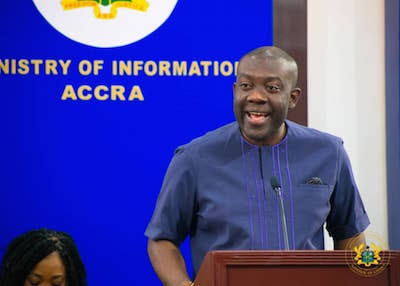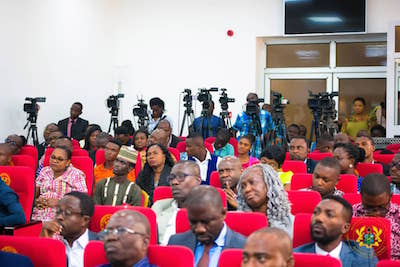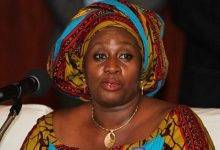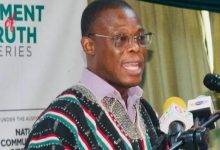
Government has debunked claims that it has borrowed more than GH₵80 billion over the last two and half years with nothing to show for it.
According to the Minister of Information, Kojo Oppong Nkrumah, even though the country’s debt had grown from GH¢122 billion in 2016 to GH¢198 billion as at the end of the first quarter of this year, it was not as a result of new loans contracted by the government.

Addressing the media in Accra yesterday, the Minister said not only was the claims by the Minority mischievous, but also lacked merit in economics.
On Thursday, the Minority in Parliament held a news conference in Accra, asking the government to show to Ghanaians, what it had done with loans and revenues it had received, amounting to over $37billion.
They asserted that the utilisation of $21.4 billion revenue and $16 billion loans do not correspond with what the government had been able to do over the period.
However, the government had described this assertion as floored and lacking foundation in economics.
Mr Nkrumah said it was true that the government’s debt had grown from GH¢122 billion in 2016 to GH¢198 billion, as at the end of the first quarter of this year.
However, it was erroneous to jump to the conclusion that the nearly GH¢80 billion addition to the existing debt of GH¢122 billion in 2016 was as a result of new loans taken by the government merely because the figure had shot up.
Mr Oppong Nkrumah explained the debt stock were made up of a number of things which were that, old loans which were now being disbursed but added to the public debt stock, and it doesn’t mean that the current administration had gone to borrow new monies.
In addition, he said the exchange rate had an impact on the nominal debt stock.
“For example if a year ago a dollar was GH¢4 and we owed $1 billion, in cedis terms it would be GH¢4 billion and if a year down the line the dollar is five cedis, just the mere shift of the exchange rate, will now move the public debt stock from GH¢4 billion to GH¢5 billion, but it will not mean GH¢1 billion new loan has been borrowed,” he said.
He explained that since 2017, the country had been experiencing some extra ordinary events that the administration had borrowed specifically to deal with and this included the bailout of the financial services sector which had cost the county about GH¢12 billion.
Furthermore, he noted that while the country was going through International Monetary Fund (IMF) reviews and successfully being passed out, it came with attendant funds.
“For example, if you use the whole bulk up figure of about $1 billion, you notice that, for example, in current cedi terms is about GH¢5 billion but that IMF money that came went to the central bank for balance of payment support. It doesn’t come to the government for infrastructure projects to show you that GH¢5 billion can be pointed to or not.”
On new commercial loans, Mr Nkrumah noted that anyone who had been reading the government’s budget document would realise that during the IMF, there was a cap that indicated that the country could not borrow more than $500 million, and even though the IMF was no longer here, government had put the cap at $750 million a year.
He said with all these evidence around, it was ridiculous to make the argument that the new administration had borrowed GH¢80 billion and could not show evidence of what it had done with the monies.
Mr Oppong Nkrumah noted that the country’s nominal debt statistics were GH¢79.6 billion for 2014, GH¢100 billion in 2015, GH¢122 billion by 2016, GH¢144 billion by 2017, GH¢173 billion by 2018 and GH¢198 billion in the first quarter of 2019.
He said these figures as a percentage of the country’s Gross Domestic Product (GDP) were 51.2 per cent in 2014, 55.6 per cent, 56.8 per cent, 55.6 per cent, 57.5 per cent and 56.8 per cent for 2015, 2016, 2017, 2018 and the first quarter of 2019 respectively under the rebase figures.
The Minister said there was no strange new borrowing that had made the country debt distress that the Minority was claiming and called on the general public to continue to have hope in the managers of the economy.
By Cliff Ekuful






